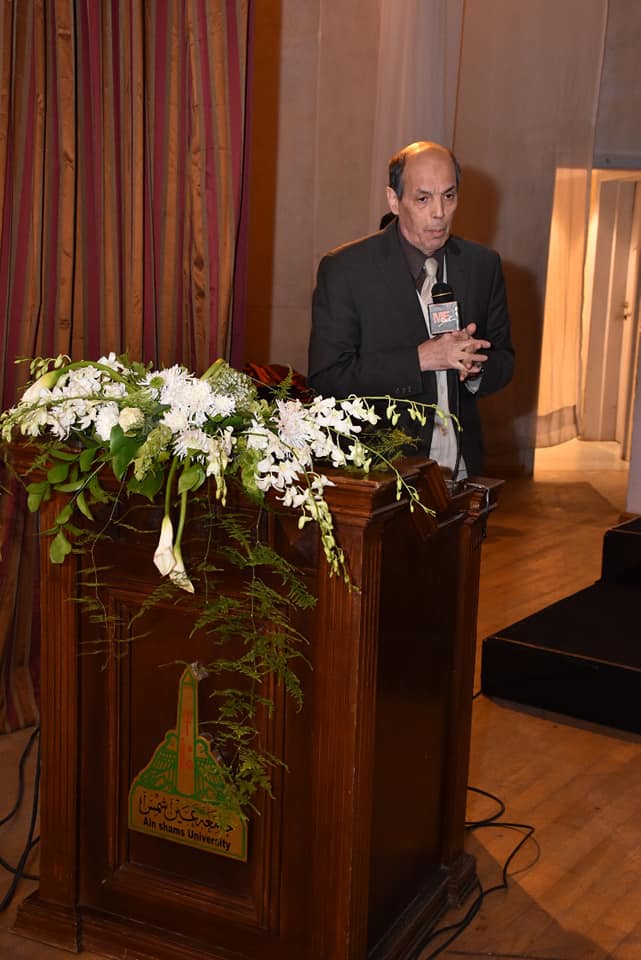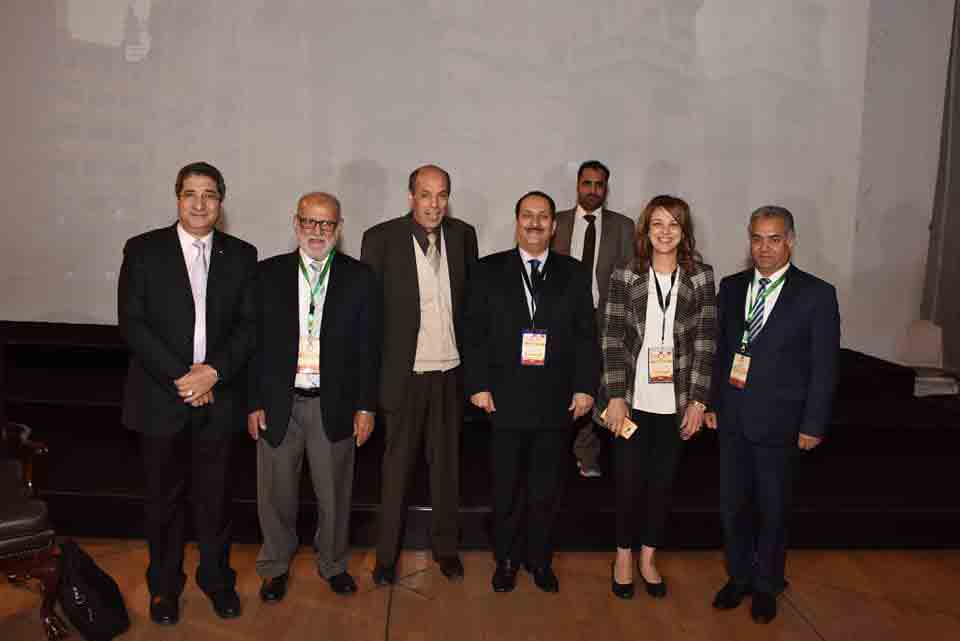The opening session of the meeting of the Humanities and Social Sciences at the 8th scientific conference of Ain Shams University
The inaugural session of the Human and Social Sciences Sector was held and chaired by His Royal Highness Prince Dr. Nayef bin Thunayan Al-Saud, and Prof. Dr. Heba Shaheen, head of the media department at the Faculty of Arts and member of the National Media Authority.
Prof. Dr. Mamdouh Damati, the former Minister of Antiquities, reviewed the work carried out by the University Mission in Arab Al-Hasn area in El-Matareya since the signing of the exploration agreement in 2017, explaining that the area of Al-Matareya has emerged most of the science since about 5000 years until the Ptolemaic era. He pointed out that many of the obelisks have been moved from the temple (Ra) in Matairiya, which is four times the area of the temple Karnak to Alexandria and Rome.
He also spoke about the discoveries made by the expedition of the university, where a temple and a palace of royal celebrations were discovered, a statue of the alpaster, a royal chamber for the coronation of King Ramses II and his son Merneptah, a number of coffins and pottery found only 10 days ago. In addition to the disclosure of the chief engineer who supervised the site.

Prof. Dr. Abdul Ghani Al Gendi discussed the strategy of 2030 and its implementation plans. He presented how the strategy was developed; pointing out that it was a long delayed step until 70% of Ain Shams University's professors participated. He explained that the strategy focused on several aspects, it is a dynamic sector develops every day.
The provinces of Egypt were divided into five agricultural regions, each with special characteristics. In order to prepare a sound and viable strategy, a number of basic conditions such as water, land, human resources, policies and legislation, research and funding and mechanisms for implementation and follow-up were required.
On the sustainable development projects in Western Sahara, Prof. Dr. Mahmoud Ashour, Secretary General of the former Geographical Society and professor in the Department of Geography, Faculty of Arts, explained that there are about 100 million Egyptians living on only 5% of the area of Egypt and this is not happening in any country with the continuous dredging of agricultural land where 80 thousand acres are razed every year because of the red brick factories along with the urban encroachment on agricultural land and the spread of slums.
He stressed that we must benefit from the available infrastructure and benefit from the experiences of others, referring to the Japanese experience by establishing industrial villages on the axis of Western desert, which will be next to farms to serve to create new communities, concluding with the need to establish the Ministry of Western desert.


.svg)

